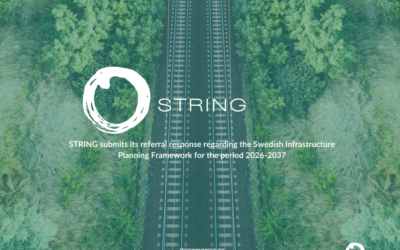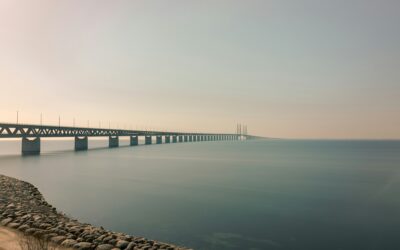The Federal Administrative Court in Germany dismissed all six complaints over the project in its verdict on November 3rd, 2020. The construction of the tunnel can therefore now begin on the German side as well. The long-awaited ruling from the Federal Administrative Court in Germany was warmly welcomed by the Chair of STRING, Claus Christian Claussen.
“This is a milestone for the project. The construction work is well on its way in Denmark and finally we have the green light on the German side as well. The Femern Belt Fixed Link improves connectivity in the entire STRING-region significantly and is key to increase growth and further unlock the STRING-regions green growth potential,” says Claus Christian Claussen.
On the Danish side, the Femern Belt Fixed Link was approved by the Danish Parliament in May 2015. The German State of Schleswig-Holstein gave its approval of the project in December 2018. The plan approval was subsequently appealed to the German Federal Administrative Court in Leipzig, and it is this process that has now been completed.
The Federal Administrative Court in Germany ruled on a total of six complaints from environmental organisations, ferry companies and the Municipality of Fehmarn. All lawsuits were dismissed. With the ruling, years of dispute have come to an end and the next phase – the construction of the 18 km long tunnel – can now get up to speed.
In June 2020, the construction of the working harbour – the largest in Europe – started and next year the construction of the factory for the manufacturing of the 89 tunnel elements will begin. The construction of the German site was estimated to start in 2022, but following yesterday’s ruling the Danish Minister for Transportation, Benny Engelbrecht, anticipates that construction will start earlier.
“We did not expect a clarification on the matter this quickly. Therefore, we must of course analyse if this means that some of the construction on the German side can be advanced,” says Benny Engelbrecht.
The combined railway and road tunnel is Denmark’s largest construction project. When the tunnel is scheduled to open in 2029, it will connect Rødbyhavn on Lolland and Puttgarden on the German island of Fehmarn. Thus, the connection will shorten the travel time by train to 2.5 hours between Hamburg and Copenhagen and the travel time by car through the tunnel to 10 minutes from the current 45 minutes by ferry.
It is now vital for the STRING region to use this window of opportunity utilising the Femern Belt Fixed Link as a catalyst to create sustainable transport connectivity, reaping the full green growth potential of the STRING megaregion. As the biggest infrastructure project in Northern Europe, the Femern Belt tunnel must become a gateway for a Northern European market of green technologies and a flagship for cross-border cooperation.



